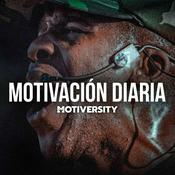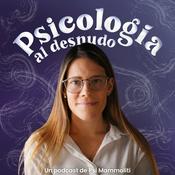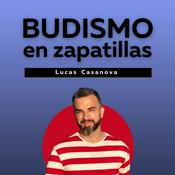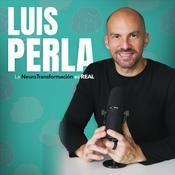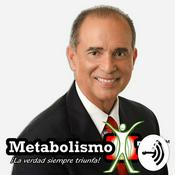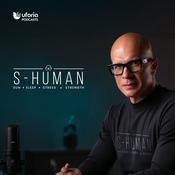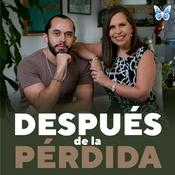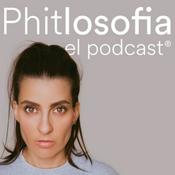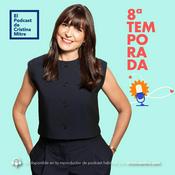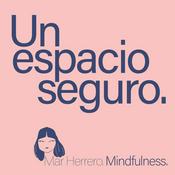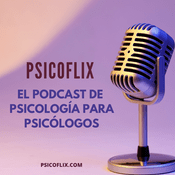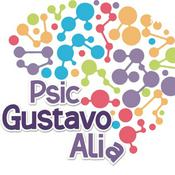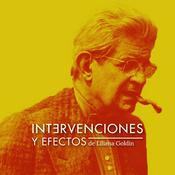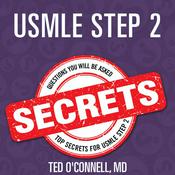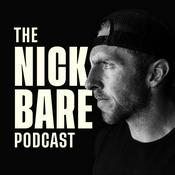The FitMind Podcast: Mental Fitness, Neuroscience & Psychology
FitMind: Neuroscience, Meditation & Mental Fitness Training
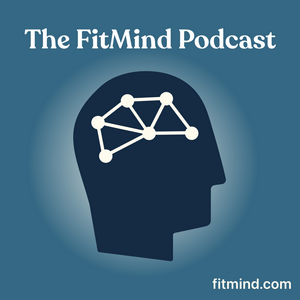
Último episodio
100 episodios
- The Science of Letting Go explores how meditation works in the brain, drawing on neuroscience, predictive processing, and contemplative science to explain how letting go reduces stress, softens self-related thinking, and changes perception over time.
In this episode of The FitMind Podcast, we sit down with PhD researcher Shawn Prest from Monash University about what's actually happening under the hood when we meditate. Rather than framing letting go as a vague emotional release, Shawn describes it as a measurable shift in how the brain assigns confidence to its highest-level models, including the sense of self.
They explore how the brain functions as a prediction system, why excessive certainty can create mental tension and suffering, and how meditation helps loosen rigid patterns by shifting perception toward more direct sensory experience. These changes can support greater equanimity, reduced reactivity, and long-term improvements in well-being.
Topics include:
How meditation changes self-related brain activity
What "letting go" means from a neuroscience perspective
The difference between insight-based and absorption-based meditation paths
Why equanimity feels relieving rather than dull or passive
A grounded, science-forward conversation for anyone curious about how meditation really works and why letting go can reduce suffering.
FitMind Neuroscience-Based App: http://bit.ly/afitmind
Website: www.fitmind.org
Show Notes
0:00 | Intro and why study the mechanics of meditation
4:40 | From meditator to researcher
9:10 | The brain as a prediction machine
14:20 | Valence, well-being, and suffering
18:50 | Why computational models matter
24:30 | Hierarchies in the brain
31:10 | What letting go actually is
37:40 | Why letting go feels relieving
43:50 | Mental tension vs physical tension
49:30 | Modeling letting go computationally
55:50 | Applying letting go on a stressful day
1:02:30 | Trauma, caution, and meditation
1:09:20 | Jhana and insight paths
1:18:40 | Cessation and lasting change
1:27:30 | Equanimity as perception
1:34:40 | The future science of awakening - Clinical psychologist and contemplative science researcher Dr. Nicholas Van Dam joins us to explore the ethics of meditation and what scientific research reveals about how contemplative practices actually work. He examines how much practice is needed to see meaningful change, why challenging experiences can arise, and what current methods can and cannot reliably measure.
We discuss the importance of informed consent in meditation, the role of wisdom traditions alongside modern science, and why honesty and nuance are essential as these practices enter mental health, education, and digital platforms. Dr. Van Dam also shares how contemplative science can support deeper understanding, responsibility, and care as meditation becomes more widely adopted.
FitMind Neuroscience-Based App: http://bit.ly/afitmind
Website: www.fitmind.org
SHOW NOTES
0:00 | Science, wisdom traditions, and the modern search for meaning
1:46 | Introducing Nicholas Van Dam and the ethics of contemplative science
3:00 | Early life, religious roots, and the path into meditation research
5:35 | From brain science to real-world mental health impact
7:30 | Building an agnostic contemplative research centre in Australia
13:10 | Ethics, bias, and responsibility in meditation research
17:00 | Translating between science and wisdom traditions
20:45 | How much meditation is enough? What dose-response research shows
26:45 | Challenging meditation experiences and informed consent
33:00 | The "missing middle": maps, stages, and what comes after beginner programs
40:50 | Equanimity, emotion, and tensions with modern life and values
52:45 | Engagement vs efficacy: why some practices are easier to sustain
1:03:00 | Retreats, daily practice, sleep, and intensity trade-offs
1:13:00 | Neuroplasticity and the limits of brain-based explanations
1:17:15 | Neurofeedback, psychedelics, and the ethics of shortcuts
1:24:15 | Mapping inner experience and the future of contemplative science
1:32:15 | AI, teachers, and scaling wisdom without losing depth
1:38:20 | The future of contemplative science and FitMind's role
1:45:21 | Where to learn more
Contemplative Studies Centre Website: https://psychologicalsciences.unimelb.edu.au/CSC
Nicholas Van Dam's Personal Website: https://www.nicholastvandam.com - Social neuroscientist Dr. Tania Singer joins us to explore the science of empathy, compassion, and the plasticity of the social brain. She breaks down why empathy and compassion are entirely different neural states, what her research with Buddhist monks revealed, and why compassion, not empathy, is the more resilient response to suffering.
We discuss the ReSource Project's surprising findings, including why interpersonal "dyadic" practices reduce social stress far better than solo meditation. Dr. Singer also shares how these practices are being brought into schools, healthcare, and even economic thinking to help create a more caring society.
FitMind Neuroscience-Based App: http://bit.ly/afitmind
Website: www.fitmind.org
SHOW NOTES
00:00 | Empathy vs. Compassion: Understanding the Brain Networks
02:57 | The Journey into Social Neuroscience
06:15 | Landmark Studies on Empathy and Pain
10:50 | Compassion: A Deeper Understanding
14:32 | The Resource Project: Mental Training Programs
20:47 | Dyadic Practices: Enhancing Social Connection
24:34 | Cortisol Levels and Social Stress
28:40 | Implementing Programs in Education and Healthcare
34:14 | Caring Economics: A New Vision for Society
40:49 | Where to Find Dr. Singer's Courses
Dr. Singer's Website: https://taniasinger.de - Cognitive scientist Dr. Therese Huston joins The FitMind Podcast to share practical, research-backed ways to sharpen focus, lower stress, and keep the brain healthy at any age. Drawing from decades of neuroscience, she explains why multitasking quietly erodes attention and memory and what to do instead.
We explore simple, realistic habits that help your mind function at its best: 20-minute single-task blocks, 40 Hz binaural beats for deep focus, and a brief 5-2-7 breathing technique that can quickly calm the nervous system. Dr. Huston also highlights how aerobic movement, dance, and social connection drive neurogenesis and long-term brain vitality.
If you've ever felt scattered, stressed, or mentally drained, this episode offers grounded science and clear tools for regaining clarity and calm in daily life.
FitMind Neuroscience-Based App: http://bit.ly/afitmind
Website: www.fitmind.org
SHOW NOTES
00:00 | Intro to Dr. Therese Huston
07:45 | Wellness overwhelm and how she filters research into usable habits
10:06 | Why "practical" matters more than trendy protocols
12:20 | The multitasking myth: short-term mood boost, long-term costs
17:09 | Live demo: single-tasking vs alternating tasks
19:40 | Errors, brain activity, and stress during multitasking
21:51 | Escaping the multitasking loop with timers and clear agreements
24:30 | Focus tools: how to use 40 Hz binaural beats
28:47 | Why multitasking feels productive and how to reframe arousal
32:33 | Before a talk: "excited, not anxious" and stress-as-fuel
36:03 | Guided 5-2-7 breathing and what it does in the body
41:18 | CO₂, vagus nerve, and decision quality after breath cycles
43:19 | Rethinking "amygdala hijack" and protecting prefrontal control
48:18 | BDNF, neurogenesis, and an aerobic exercise target for memory
51:24 | Dance, social connection, and brain longevity
52:53 | Quick fire: myths to ditch and personal focus resets
54:45 | Exercise snacks and team culture ideas - World champion freediver Will Trubridge explores the depths of the mind and ocean, sharing mental techniques honed through decades of extreme performance.
In this episode, he explains how breathwork, mindfulness, and what he calls the "mental immune system" can help us face fear, build resilience, and expand awareness.
Discover how lessons from the deep sea translate into a healthier, more conscious life on land.
FitMind Neuroscience-Based App: http://bit.ly/afitmind
Website: www.fitmind.org
SHOW NOTES
00:00 | Intro to Will Trubridge
01:21 | Will's Background & Early Freediving
04:59 | Role of Breathwork
09:43 | Physiological Adaptations Underwater
14:16 | Overcoming Fear and Mental Barriers
19:41 | Consciousness in Freediving
26:23 | Parallels to Meditation
31:59 | Limits of the Mind
39:56 | The Mental Immune System
43:59 | Practical Mental Techniques
50:26 | Applying Freediving Lessons to Life
54:53 | Science of Freediving
1:01:31 | Mind-Body Connection
1:09:41 | Awareness Training & Breathwork Exercises
1:14:59 | Closing Insights
Website: https://www.williamtrubridge.com
Mental Immune System: https://mentalimmunesystem.com
Más podcasts de Salud y forma física
Podcasts a la moda de Salud y forma física
Acerca de The FitMind Podcast: Mental Fitness, Neuroscience & Psychology
Expert insights on the science of mental fitness. Topics include psychology, neuroscience, mental health, mindfulness meditation, productivity, brain technologies, Stoicism, happiness hacking, and more.
Liam McClintock, the Founder of FitMind, talks with leaders in their fields, from neuroscientists and psychologists to Buddhist monks and professional athletes.
At FitMind, we believe that the next great human frontier is the mind. FitMind combines ancient techniques with western psychology to provide mental fitness training that is taught at Fortune 500 companies, addiction centers, schools, government organizations, and on the FitMind meditation app.
Liam McClintock received a B.A. from Yale and worked in finance before traveling to Asia to study meditation full-time. He is currently completing an MS in Applied Neuroscience at King's College London. Liam is an RYS Certified Yoga & Meditation Instructor and has trained in various meditation styles. He has been featured in Time, Vice, Daily Mail, Cosmopolitan, NBC, and Men's Health.
Sitio web del podcastEscucha The FitMind Podcast: Mental Fitness, Neuroscience & Psychology, El Rincón De Los Errores y muchos más podcasts de todo el mundo con la aplicación de radio.net

Descarga la app gratuita: radio.net
- Añadir radios y podcasts a favoritos
- Transmisión por Wi-Fi y Bluetooth
- Carplay & Android Auto compatible
- Muchas otras funciones de la app
Descarga la app gratuita: radio.net
- Añadir radios y podcasts a favoritos
- Transmisión por Wi-Fi y Bluetooth
- Carplay & Android Auto compatible
- Muchas otras funciones de la app


The FitMind Podcast: Mental Fitness, Neuroscience & Psychology
Escanea el código,
Descarga la app,
Escucha.
Descarga la app,
Escucha.







